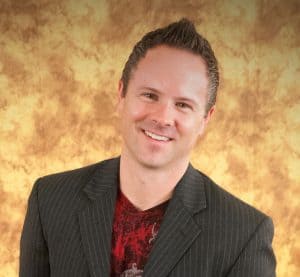I’ll do a book signing and every third person in line—and I don’t think that’s an exaggeration—will say to me, My son, or my daughter, or my grandson, or my granddaughter went to church and went through the youth program, they went away to school, now, they just told me that they’re now an atheist. What do I do? I get that all the time.
—Lee Strobel—
B. Nathaniel Sullivan
wordfoundations@gmail.com
April 27, 2018
Note: This letter is part of a series on equipping the next generation of Christians to defend their faith and to embrace a biblical worldview.
To pastors and student pastors everywhere who seek to uphold the Scriptures and impart God’s Word to God’s people,
I want to begin by thanking you for your work to share the gospel and make disciples. In 1 Thessalonians 5:12-13 Paul said, “And we urge you, brethren, to recognize those who labor among you, and are over you in the Lord and admonish you, and to esteem them very highly in love for their work’s sake.” Being a pastor or a student pastor or leader often is daunting task, especially at this time and in this culture. Presenting the truth of the gospel faithfully and consistently means swimming upstream in an increasingly hostile environment. God blesses those who faithfully persevere, however. To the Galatian Christians Paul wrote, “And let us not grow weary while doing good, for in due season we shall reap if we do not lose heart.”
I’m sure that like me, you are very concerned and even alarmed at the number of young people and young adults who are leaving the church. Secularism has become the cultural norm, and overt atheism has asserted itself with renewed strength. What can the church do to help next-generation Christians embrace, keep, and share a vibrant faith in Christ?
Knowing What You Believe and Why: It’s Critical!

Dr. Ray Bohlin, a Christian scholar who serves as vice-presdident of vision outreach for Probe Ministries, has a creative and effective way to help groups of Christian high school students become aware of their readiness, or lack thereof, to have their faith challenged in a classroom setting.
Dr. Bohlin assumes the role of an atheist professor who has been given permission to conduct some informal research on the students’ beliefs about God and spiritual matters. Sometimes the young people know he is role-playing, but at other times, at least initially, they believe he really is who he claims to be.
The professor’s name is Dr. Hymie Schwartz, and “Dr. Schwartz” begins by saying something like this: “Alright, since this is a church student group (or a Christian school), I assume everyone here is a Christian. Is that right? Tell me—is anyone here not a Christian?” He’s aware, of course, that some may not be believers, but after setting the stage this way, no student raises a hand to indicate he or she is an unbeliever.
Then the challenges begin! Dr. Schwartz will call on someone specifically and ask, “Are you a follower of Christ?” Everyone he’s asked this question in this setting has answered in the affirmative. Then he will simply ask, “Why?” Often the students appear dumbfounded that such a question had even been posed. Obviously they never had considered it before.
From this point forward, a scenario is likely to unfold similar to this. The student will say, “Because I prayed and asked Jesus to come into my heart.”
“Oh, really?” That sounds strange to me—actually, pretty nasty! What’s Jesus doing inside there? Huh? Helping your heart pump blood?”
“I don’t mean I asked Him to come into my body literally. I mean I asked him to come into my life and be my Savor.”
“But wait! What in the world did you need to be saved from? And how do you know you need to be saved from anything, anyway?”
Dr. Bohlin reports,
It really is not difficult to pick something from what he or she [has] said and challenge it. I either pretend I don’t understand what they said, forcing them to better explain themselves (which is rare), or I deliberately ask them why they think that way, or how they know that.
In answer to “How do you know that?” I am often told that “It says so in the Bible!” They usually can’t tell me where the Bible says that. I also ask if the Bible is true, and they say it is. But when I ask, “How do you know it’s true?” the blank stare reemerges.
Usually students don’t tell Dr. Bohlin why they are Christians, but how they become Christians. Also, quite often, a student will say he or she believes in Christ because of parents’ influence and because the family attended church regularly.
This is quite the opportunity for the visiting professor!
I usually pounce on that pretty quickly and repeat that this student believes Christianity is true because their parents told them so. The student usually agrees. After commending them for honoring their parents I tell them that’s really pretty stupid. Pausing a second for the shock to register, I go on about the boy raised in India whose parents are Hindu and he respects his parents and believes Hinduism is true, so the boy in India and this student are both headed to heaven because they trusted their parents!
What do young people say in response to this? One young man, after hesitating and faltering as he tried to think of how to respond, finally agreed with the professor—much to the chagrin of his youth pastor, who buried his head in his hands.
A Widespread Problem
Dr. Bohlin isn’t the only one who gets bewildered looks when he asks churchgoing students why they are believers. Tim Stratton gets the blank stares too—and after pushing and coaxing students to respond, he typically hears them tell him they are Christians because they were raised in Christian homes and have attended church all their lives, or because they were born in the United States!
Is it any wonder, then, that apologist and best-selling author Lee Strobel is repeatedly told at book signings that after leaving home, young people who went to church all during their formative years are coming back to announce they now are atheists?
Properly Diagnosed, the Ailment Can Be Effectively Addressed

Dr. Sean McDowell understands the situation and its cause. Knowing the cause, we can implement an effective remedy. While a variety of factors are at play in the exodus of youth from the faith they were brought up to embrace, a basic, bottom-line reason exists.
Here are two extremely insightful audio clips from one of Sean’s presentations on this important issue.
In the first segment, which lasts just one minute, Sean reveals the main reason young people are leaving the church and the Christian faith.
The core reason, therefore, is that the church has failed to present Christianity as a comprehensive system through which believers can see the world and all aspects of life as they really are. In other words, the church has failed to present and to advocate “worldview Christianity.”
The church has failed to present Christianity as a comprehensive system through which believers can see the world and all aspects of life as they really are.
In the second, 2½-minute clip, Sean reveals the primary reason a person should be a Christian.
Both of these sound bites, along with the text of what Dr. McDowell says in each one, are available here.
Mark it down! Christians equipped with a biblical worldview are far less likely to leave the faith—and far more likely to follow Christ consistently in their daily lives. You see,
A biblical worldview seeks to explain the reality of God’s truth in every area: from philosophy and science, ethics and economics, to psychology, sociology, law and, yes, even politics. In this way, no matter what course in school a student takes, he or she will be able to discern when the professor is presenting an anti-biblical bias.…
With biblically-based convictions firmly etched in their minds, Christian students will be prepared not only to withstand the attacks on their faith, but also they will be in a better position to help their friends understand God’s truth, and even make a positive contribution to shaping society for God’s glory. With this kind of preparation, the downward spiral of spirituality can be reversed. And when future surveys are taken, more students will respond on the positive side of the spiritual ledger.
During the next several posts we will explore numerous elements the church needs to include in its ministries to students and their families to help young Christians develop and live according to a biblical worldview. At the outset, it’s important to be aware that learning apologetics—the discipline of becoming familiar with evidence for the Christian faith so a believer can defend it—is a vital part of this process. Why? Because apologetics helps us understand and know that Christianity is true—and by that I mean true regardless of what people think about it or say for it or against it.
Learning apologetics—the discipline of becoming familiar with evidence for the Christian faith so a believer can defend it—is a vital part developing a Christian worldview. You see, apologetics helps us to understand and know that Christianity is true!
Our discussions could not be more important, because they have profound long-term implications for the church, the next generation, and even the world.
Sincerely,
B. Nathaniel Sullivan
You can find links to all the articles in this series here.
Copyright © 2018 by B. Nathaniel Sullivan. All rights reserved.
top image credit: www.lightstock.com
Unless otherwise indicated, Scripture has been taken from the New King James Version®. Copyright © 1982 by Thomas Nelson, Inc. Used by permission. All rights reserved.

Be First to Comment